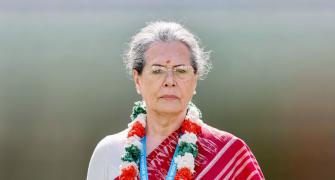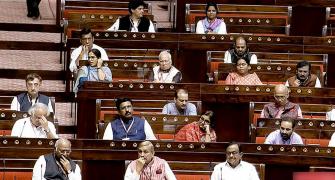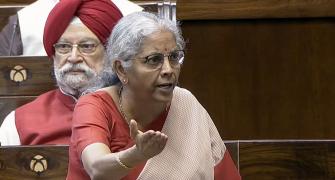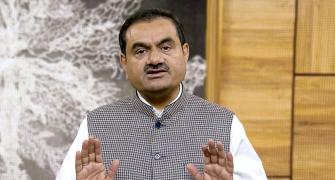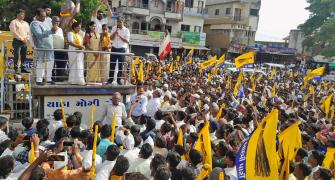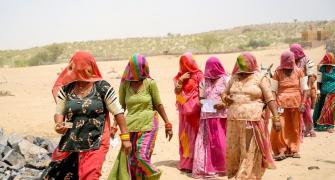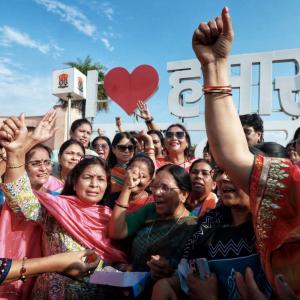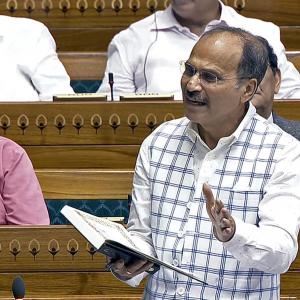Prime Minister Narendra Modi's move to get reservation for women in legislatures promises to shape the political discourse ahead of key state polls and Lok Sabha elections, and a parliamentary approval to the long-contested proposal will be used by the Bharatiya Janata Party to burnish his credentials as a decisive leader.

However, it is also likely to bring to a head the inherent opposition the idea has generated around the demand for a separate quota for OBCs, especially from regional parties from Hindi-speaking states which draw support from backward castes, with silent support from OBC satraps from within major parties as well.
Parties like the Rashtriya Janata Dal and the Samajwadi Party have indicated their opposition by seeking 'quota within quota', while the Janata Dal-United leader and Bihar Chief Minister Nitish Kumar has welcomed the bill but joined them in calling for an OBC quota. The Congress, too, has echoed the view.
The BJP, however, has now succeeded in winning over a big chunk of OBC votes and is confident of dealing with the political challenge.
Under Modi, the party has succeeded in building a strong constituency for itself among women voters with his welfare policies and believes that the proposed law can help it make more inroads over the caste faultlines.
Earlier, it was the vocal protests from opposition satraps like Mulayam Singh Yadav and Lalu Prasad Yadav and internal opposition, more so from OBC leaders, from within major parties like the BJP and the Congress which scuttled numerous attempts to get parliamentary nod to similar bills despite the public support the leadership of key national parties extended to the idea.
With the BJP enjoying a strong majority in Lok Sabha and many unaligned parties, including the Biju Janata Dal, the Bharata Rashtra Samiti and the Yuvajana Sramika Rythu Congress, now supporting the women's reservation, the Modi government is better placed than previous dispensations to have the 'Narishakti Vandan Adhiniyam' passed.
The bill's provision that the new law once enacted will come into force only after a fresh census and delimitation means that the women's reservation is unlikely to be in effect in the 2024 Lok Sabha election, a move which has drawn immediate criticism from the opposition.
The BJP has been principally in support of such a bill and it found mentions in its manifestoes for the 2014 as well as 2019 Lok Sabha elections.
The Congress' manifesto for the 2019 polls also evinced support.
The BJP has, however, accused the Congress of paying lip service to the agenda of women's representation while in practice sabotaging it through its alliance partners and some of its own MPs.
The Vajpayee government brought the bill several times to Parliament but could never get it passed in Lok Sabha, a House where the BJP-led National Democratic Alliance had a majority unlike in Rajya Sabha.
Protests from within his alliance and from the opposition had ensured it, those familiar with the developments said.
A BJP leader noted that the Congress-led United Progressive Alliance got the bill passed in Rajya Sabha with the support of the main opposition party (BJP) but never pushed for its passage in Lok Sabha, where it had a majority.
OBC satraps, who dominated politics in states like Uttar Pradesh and Bihar for over 25 years before the BJP's ascendence in 2014, were fiercely opposed to the idea, calling it elitist and one undermining the interests of backwards.
Then Janata Dal leader Sharad Yadav said controversially that 'par-kati mahilayen' (women with short hair) will be the main beneficiaries of women's quota, Lalu Prasad Yadav described it as a 'grave threat' to social justice while Mulayam Singh Yadav claimed urban women will rise at the cost of their rural counterparts as the latter are not 'attractive'.
Firebrand BJP leader Uma Bharti, who comes from the OBC Lodh community, had also opposed the bill in the 1990s without the 'quota within quota'.
That many MPs from national parties also felt threatened by such a quota in an era when coalitions ruled and several interest groups needed to be humoured by different governments meant that various versions of such a bill, first brought by the H D Deve Gowda government in 1996, could never see the light of the day.

